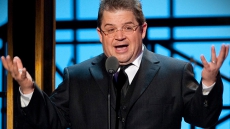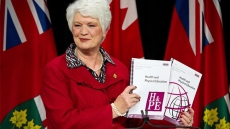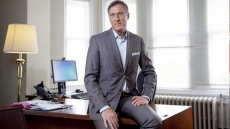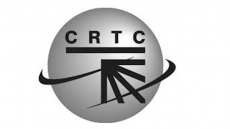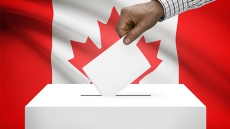Quebec will post a balanced budget this year and tightly control government spending as the province aims to slice its massive debt over the next decade, says Finance Minister Carlos Leitao.
With a gross debt of $197.1 billion as of March 31, 2014, Quebec was by far the most indebted province in the country.
Leitao's 2015-16 budget, tabled in the national assembly Thursday, contains no new taxes and ends a string of six consecutive deficits that added $16 billion to the debt.
"The return to a balanced budget is not the end,'' he told the legislature.
"Quite the opposite, in fact, it is a point of departure and gives new momentum to Quebec.''
The ratio of Quebec's debt to gross domestic product last year was a crippling 54.3 per cent, the highest in the country.
In comparison, Ontario followed at 45 per cent, while Alberta had the best ratio —seven per cent.
In tabling the budget, Leitao was looking as far ahead as 2026 when, he hopes, Quebec's ratio will have dropped to 45 per cent.
More immediately, Leitao stressed the importance of keeping the lid on government spending if the province wants to achieve its goals.
Quebec also came out with its 2015-16 spending estimates Thursday, making it clear that previously announced cost-cutting measures are only the beginning of a long-term strategy to downsize government.
Various agencies will be merged, the number of government employees will be reduced and those who remain will be offered salary increases that "respect taxpayers' ability to pay.''
"Government spending must be contained,', said Treasury Board president Martin Coiteux. "We can no longer spend more than the revenues we receive.''
A Quebec budget wouldn't be complete without a plea for more money from the federal government — and Thursday's was no exception.
Leitao, who before entering politics to run in the 2014 election was ranked as the world's second-best economist by Bloomberg News, called on Ottawa to boost transfers in health, social and equalization payments and to invest more in infrastructure in the province.
"The federal government must further commit to sharing the provinces' financial pressures in regard to social programs and infrastructure, in a context where federal surpluses are on the horizon,'' he said.
Quebec expects overall revenue of $100.2 billion in 2015-16, with $19.4 billion of that coming from Ottawa.
Leitao also confirmed the deficit for 2014-15, which ends this coming March 31, will be $2.35 billion, as was projected in last June's budget.
He announced that as of Jan. 1, 2017, the general corporate income tax rate will be cut by one-tenth of a percentage point a year until January 2020, when the rate will be 11.5 per cent.
The government estimates the measures, once fully implemented, will represent a $120-million decrease in the tax load on businesses every year.
And in a bid to keep older Quebecers from retiring, Leitao said an improved tax credit will help save a 63-year-old worker $902 a year by 2018, while the amount will climb to $1,504 for a worker aged 65.
"Quebec will be confronted with a major challenge in regard to manpower in the coming years and we want to create conditions that will encourage more experienced workers to pursue their career for longer,'' he said.
Parti Quebecois finance critic Nicolas Marceau accused the Liberals of taking shortcuts that compromise economic growth.
"It's easy, very easy, to table a zero-deficit budget when you don't care about the consequences on economic growth, on employment, on investment, on Quebecers' standard of living and on services to the population,'' he said.

